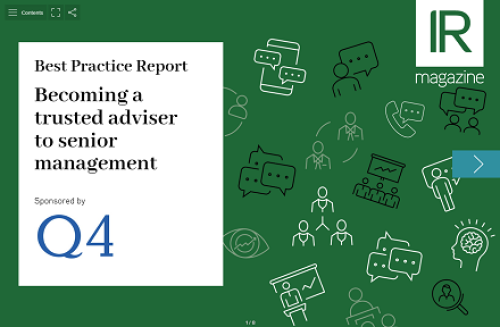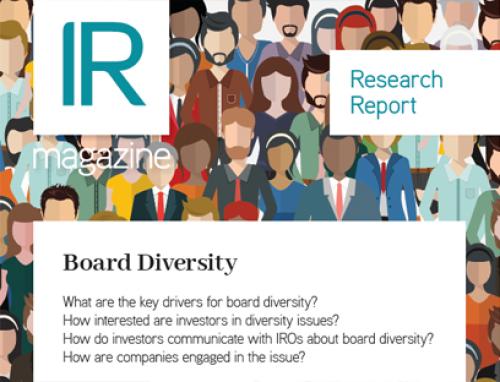Salaries rise nationwide as more IROs counsel C-suite, finds CIRI research
More and more Canadian IROs are providing advice directly to their C-suite – with the majority being paid more for their increasing importance – as the IR function is becoming recognized for its strategic value, according to a new CIRI survey.
On average, respondents to the trade body’s survey earned $188,500 in total cash compensation in 2014. More than a third of respondents earned at least $225,000 – up from 24 percent in 2011 – while 19 percent earned more than $300,000 – also up from 15 percent in 2011.
CIRI polled 189 IR professionals, 55 percent of whom are qualified corporate members of the institute, during the fourth quarter of 2014, with the help of technology firm NovaShare Solutions.
The survey also finds that IR is becoming a more valued corporate function. Of those polled, 82 percent have counseled management within the past 12 months, up from 79 percent in 2012. There has also been an increase in IROs responsible for presenting to their board: 64 percent, up from 57 percent in 2012.
Yvette Lokker, CIRI’s president and CEO, says these trends show IROs are becoming indispensable at their companies. ‘They are sharing the intelligence they gather ‒ whether it be perspectives from institutional investors, insights on trading activity or industry information ‒ with their management teams and boards, which is being used to inform strategic decisions for the organization,’ she explains. ‘The growing importance of this intelligence is evident from the increased number of IROs counseling management and participating in board meetings.’
Despite this, and most IROs reporting that they are close to the key decision-makers at their companies, direct communication with the C-suite is changing. This year, 32 percent of IR professionals say they report to their CEO (down from 49 percent in 2012) and only 27 percent report to the CFO (down from 36 percent in 2012).
The report’s writers add, however, that this may be a consequence of this year’s higher concentration of participants from large-cap issuers, which tend to have a more tiered reporting structure into management. Indeed, this year’s survey includes many more IROs at mega-cap and large-cap companies (20 percent and 42 percent, respectively).
CIRI’s respondents are also highly educated: almost all (99 percent) have post-secondary education, while almost half (49 percent) have a CFA designation. Three in five IROs are seasoned practitioners, with more than six years of experience in the post.
Lokker adds that in the coming year she expects the precise role of IR to change further still. ‘I think governance practices will continue to be a primary focus for institutional investors,’ she continues. ‘As the key contact for this stakeholder group, IROs will need to be aware of leading governance practices and how they relate to their own company’s practices.’










